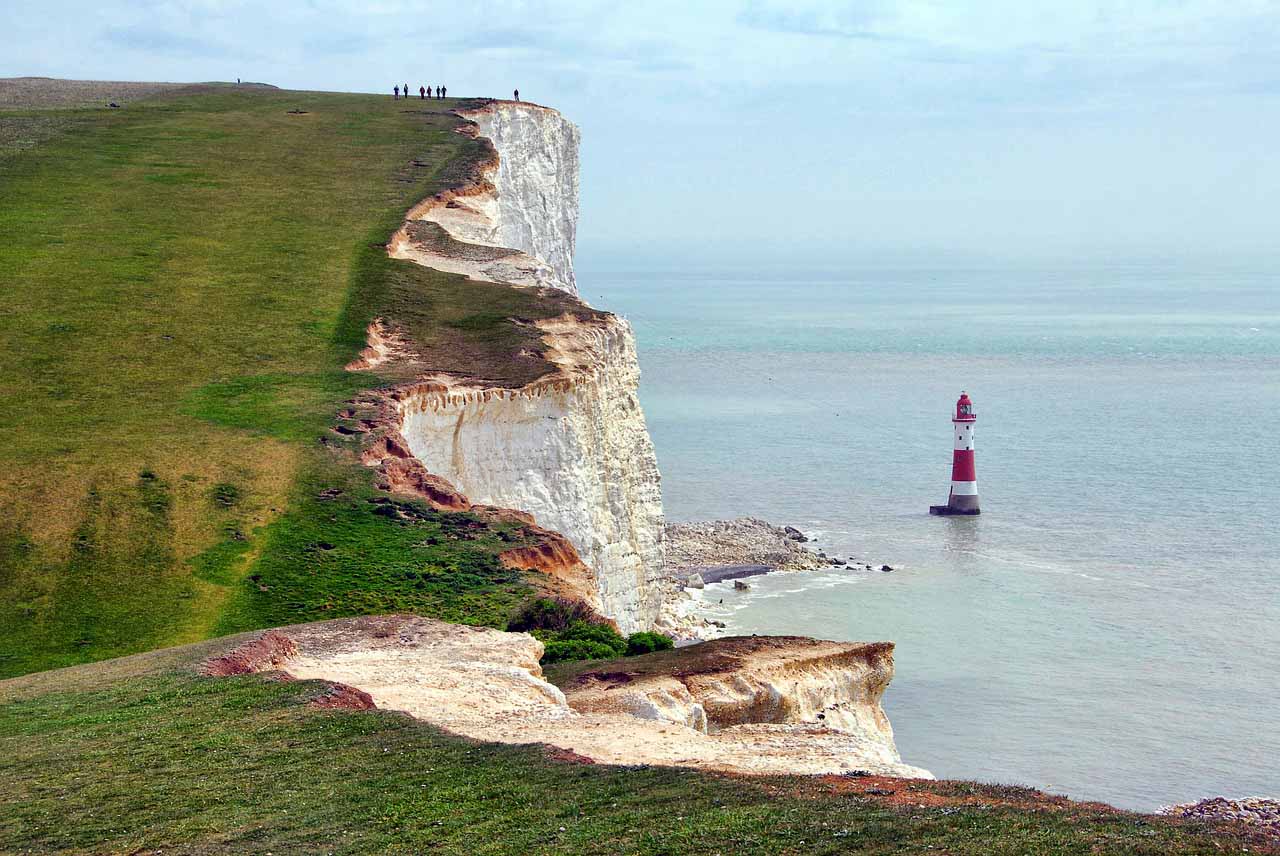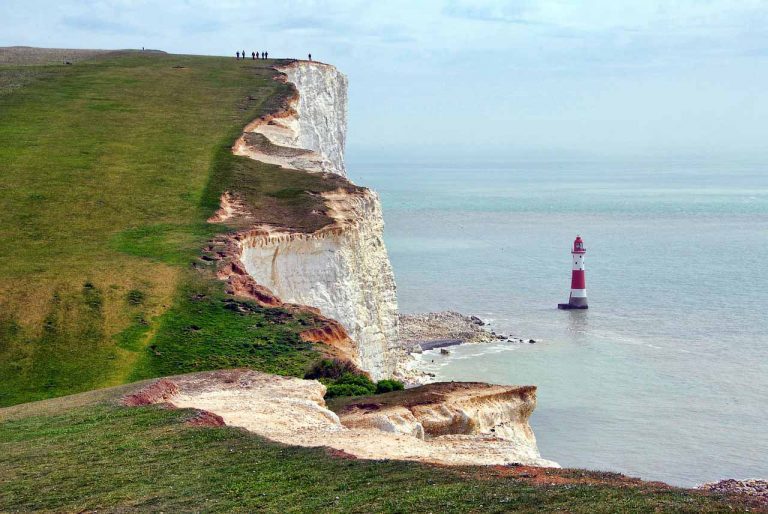DIVING NEWS
‘Paper parks’ warning as English Blue Belt extended

New MCZ at Beachy Head East. (Picture: Graham Hobster / Pixabay)
Environmentalists have welcomed today’s announcement (31 May) of a near-doubling in the number of Marine Conservation Zones in England’s “Blue Belt” – while warning against the danger of creating mere “paper parks”.
The creation of 41 new MCZs around English coasts and in UK offshore waters around England, Wales and Northern Ireland was described as “a big step forward” by Wildlife & Countryside Link, England’s biggest coalition of wildlife and environment charities.
WCL includes the Marine Conservation Society (MCS), Whale & Dolphin Conservation, the Wildlife Trusts, WWF UK and seven other bodies.
But the charities insist that without effective management and well-resourced enforcement, marine life will go on declining at the new sites.
Earlier this month, they point out, the Environmental Audit Committee slammed the lack of protection for these areas in its Sustainable Seas report, expressing concern that the Government was “doing little more than putting lines on a map”.
31 May 2019
The 41 new MCZs, an addition to 50 existing sites, were announced by Defra (the Department for Environment, Food & Rural Affairs), which recently had to admit its failure to achieve healthy seas through the UK Marine Strategy, managing to meet only four of its 15 targets.
“The collective UK Governments’ admission that our oceans are in poor health is a wake-up call,” says WCL. “We must grasp this once-in-a-lifetime opportunity to turn the tide on biodiversity loss.”
Dr Jean-Luc Solandt of the MCS welcomed the announcement of the new zones.
“The UK has a growing network of more than 300 Marine Protected Areas, but the government must now invest in proper management of these sites and keep them free of all activities that damage the seabed, so that our spectacular marine wildlife can recover from decades of destruction and degradation,” he said.
MPAs are parts of the sea that are partially or fully protected from damaging or extractive activity, while MCZs are a specific type of MPA designed to help protect nationally important marine wildlife and habitats and to help ensure sustainability of resources in English waters.
The new MCZs include Beachy Head East, Bexhill and Hastings in Sussex, which the MCS describes as “home to an incredible diversity of fish, including seahorses”.
Also designated are Orford Inshore (Suffolk), Markham’s Triangle (NE coast), Ribble Estuary (Lancs), Kentish Knock East, Bembridge (Isle of Wight), Purbeck (Dorset), which includes the long-campaigned-for Studland Bay seahorse habitat, Dart Estuary (Devon) and Helford Estuary by the Lizard (Cornwall). Two sites off Northern Ireland are also included: South Rigg and Queenie Corner.
The new MCZs are intended to protect a range of marine wildlife including worms, starfish, sea firs, sea urchins, spiny lobster, molluscs, fan mussels, tentacled lagoon worms, short-snouted seahorse and native oyster, says the MCS. Protected habitats include sand, tidal mud, rocky reefs and gravel.
Scuba divers played a major part in informing Defra’s decisions on the new MCZs, by gathering evidence through the Seasearch volunteer dive programme. “Our divers have spent hours and hours diving England’s incredibly diverse seabed habitats to record the marine plants and animals that inhabit our inshore seas,” said national coordinator Dr Charlotte Bolton.
“Through this meticulous citizen science we have been able to make the case for the protection of many of these new sites, and we look forward to helping local authorities develop robust management and monitoring plans for these MCZs so that the amazing marine life they protect really can recover.”
The 11 conservation charities have now issued a three-point challenge to the Government.
They are calling on it to ensure that effective management is put in place by the end of 2019; to commit to regular monitoring of all MPAs to better understand trends and ensure their protection, with enforcement increased where necessary to prevent harmful fishing practices; and to provide ring-fenced monitoring and enforcement funds from central Government “rather than over-stretched public bodies”.
Despite commitments, the Scottish Government has delayed a public consultation for further protected sites in its waters for four years, says WCL, while Wales had yet to announce any plans.

